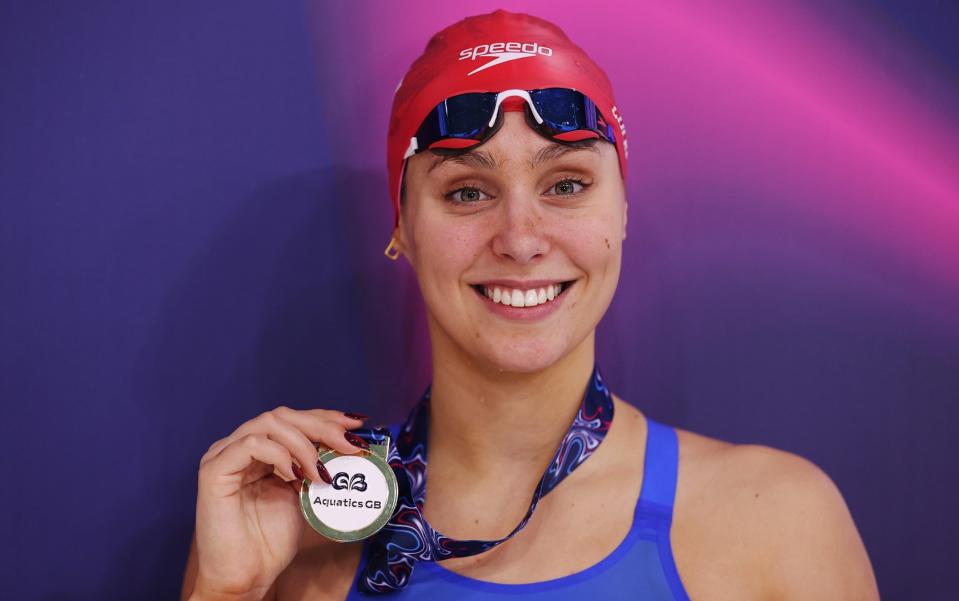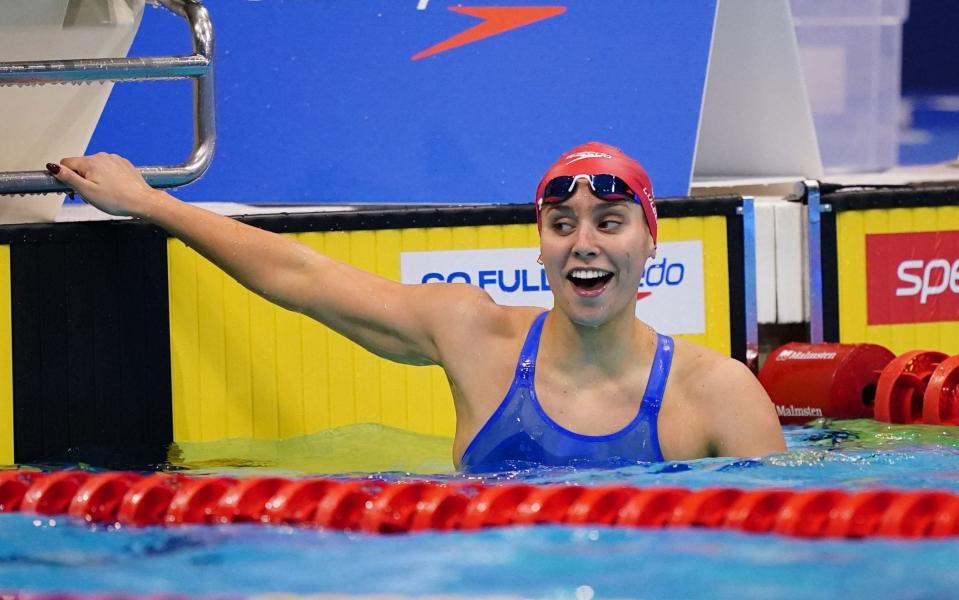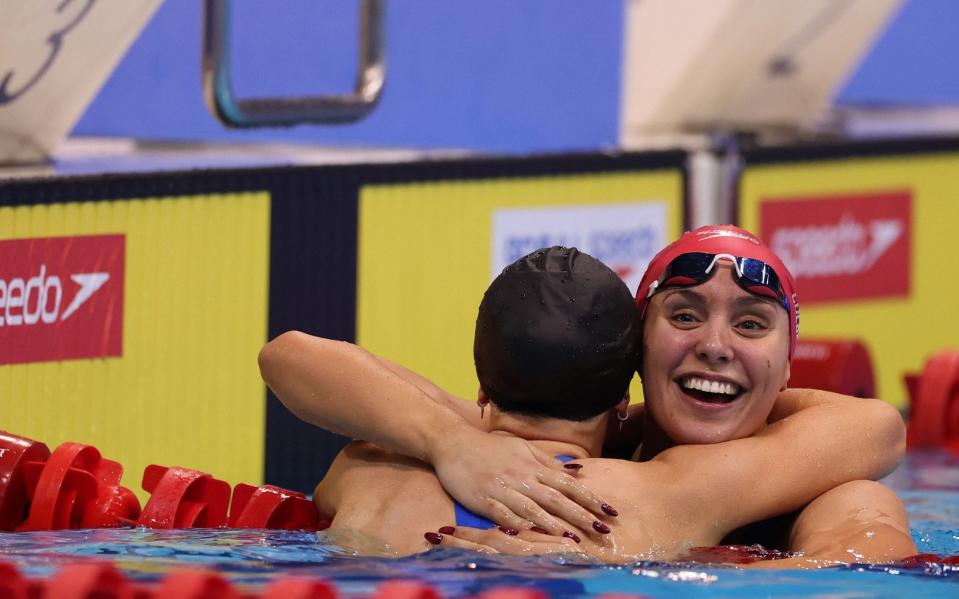Freya Colbert leads new wave of British female swimmers aiming for Olympic gold

When Great Britain delivered their finest Olympic swimming performance three years ago, it was the men who won seven of the eight medals and also shared a world record-breaking mixed medley relay triumph.
It was quite a shift, then, at the World Championships in Doha in January when the women bettered the men within a tally of seven British medals, including individual global golds for Freya Colbert and Laura Stephens that were the first since Rebecca Adlington back in 2011.
Adlington was also the last British woman to win an individual Olympic title some 16 years ago and there is growing excitement that a still golden generation of men – headed by Adam Peaty, Tom Dean, Duncan Scott, Ben Proud and Matt Richards – are being joined by an outstanding crop of female talent.
It was a trend identified by head coach Bill Furniss following the World Championships last year after Lauren Cox’s 50 metres backstroke bronze and, crucially, encouraging final performances by Colbert, Freya Anderson, Katie Shanahan and Stephens, as well as fourth-place finishes in both the freestyle relays.
The improvement was confirmed in Doha, with the then 19-year-old Colbert embodying a new generation with her 400m individual medley gold, secured in the last 10 metres of a dramatic race. She also won a 4x200m relay silver alongside training partner Abbie Wood, Lucy Hope and Medi Harris.
“Everyone always has the dream to go to the Olympics… but I didn’t necessarily think I’d be in this position,” Colbert says. “It shows how quickly it can change. In lockdown, like so many people, I wasn’t competing. I wasn’t training. I did struggle. So much of the sport for me is the social side of it.
“I hadn’t made a senior team [at the time of the Tokyo Games] and was probably slightly oblivious to the magnitude of the performances. I wasn’t someone who stayed up and watched the finals.
“I would watch the races back on my phone but it was definitely very inspiring. We are only a small country compared to America. The legacy is there. The gauntlet has been laid down and we are going to be trying to beat that in Paris.”

Colbert has already won the individual women’s 200m freestyle at this week’s British Championships at the London Aquatics Centre and she will also be hoping to add another title in her preferred 400m medley.
“When I first joined Loughborough a year and a half ago, Dave [Hemmings, the Team GB coach] sat us down and said that this was the first time he’d really had such a strong group on the female side,” she says. “We did a bit of work around the bonding and really using each other in training to get the best out of each other.
“That is something that I really underestimated, and maybe is underestimated a lot growing up in swimming. I think it has been overlooked, not on purpose, but the boys’ side has been stronger in recent years. We are really pushing and driving forward. It was nice to even the scales a little bit [in Doha].
“I also have to thank everyone who did so well in Tokyo for the amount of funding we have received. Sport is expensive, it’s very rare it becomes a full-time job, very rare that people performing at the highest level can actually support themselves, and it wouldn’t be possible without the National Lottery. My dad would play every week to support the swimmers, to support the sportspeople, to invest in our future.”

Colbert’s full-time swimming programme, which comprises around 70km spread over 10 two-hour sessions each week alongside daily strength training, is currently combined at Loughborough with studying bioengineering. “I would go a bit crazy without anything else to focus on outside,” she says. “I had exams in January and more in early June. It’s sometimes stressful to have that stack of work in the background but it’s nice to always have something to be doing.
“I think one of the things I’ve learnt from being so close to Abbie [Wood] and Max [Litchfield] is actually just to chill out a little bit.
“The environment also helps. You have Olympic champions walking around poolside [Peaty and Anna Hopkin also train at Loughborough]. Day to day I feel the exact same since the World Championships. I’ve definitely taken a lot of confidence but there was a lot of competition not there. I’ve got my eye on an Olympic medal but I’m not delusional – I’m very realistic and logical and critical.”
The parallel normality of university life has also brought a welcome perspective. “I love it when I go to uni and I am just with everyone else and completely normal, just going to the library with my friends,” she says.
“They know I swim but most of them obviously don’t know the extent to it. I don’t bring it up. When I went back to uni [after becoming world champion], it was, ‘Oh my god’ but, after five minutes, I was like, ‘Let’s move on. You need to catch me up on what I’ve missed’. When I’m not a swimmer, I want to be an average person – that’s what I crave.”

 Yahoo Sport
Yahoo Sport 



































































